The Electron framework lets you write cross-platform desktop applications using JavaScript, HTML and CSS. It is based on io.js and Chromium and is used in the Atom editor. You can use HTML, CSS, and JavaScript with Chromium and Node.js to build your app.Electron is open source; mantained by GitHub and an active community. Best of all, Electron apps build and run on Mac, Windows, and Linux.

Requirements: –
Demo: http://electron.atom.io/
License: MIT License
T3 is a client-side JavaScript framework for building large-scale web applications. T3 is different than most JavaScript frameworks. It’s meant to be a small piece of an overall architecture that allows you to build scalable client-side code. A T3 application is managed by the Application object, whose primary job is to manage modules, services, and behaviors. It’s the combination of these three types of objects that allow you to build a scalable JavaScript front-end.
T3’s design enforces best practices such as loose coupling by limiting how certain components can communicate with each other. Modules cannot interact directly with other modules but may communicate with them through an event bus. Modules may use services directly, but may only reference behaviors in a declarative way. These restrictions ensure that the various pieces remain loosely-coupled to make dependency management easy and maintenance self-contained.
The loosely-coupled nature of T3 components means that creating tests is easy. Dependencies are injected into each component, making it trivial to substitute a mock object in place of real ones.

Requirements: JavaScript Framework
Demo: http://t3js.org/
License: Apache License
Basscss is a lightweight collection of base element styles, immutable utilities, layout modules, and color styles designed for speed, clarity, performance, and scalability.
Using clear, humanized naming conventions, Basscss is quick to internalize and easy to reason about while speeding up development time with more scalable, more readable code. Basscss strikes a balance between consistency and flexibility to allow for rapid prototyping and quick iterative changes when designing in the browser.
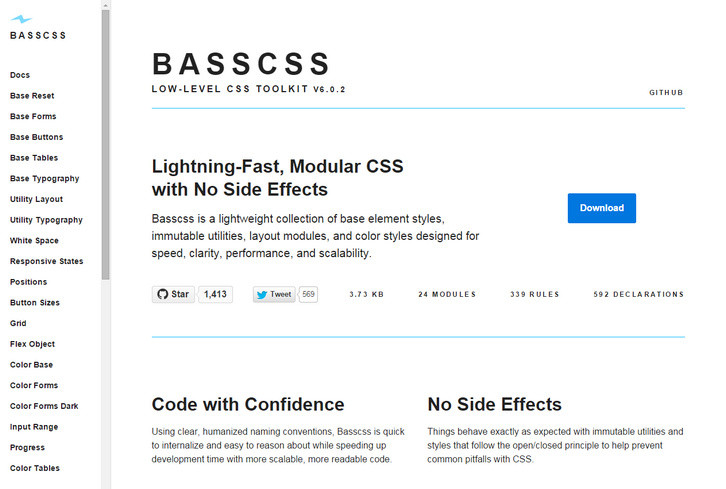
Requirements: CSS Framework
Demo: http://www.basscss.com/
License: License Free
Grav is a Fast, Simple, and Flexible, file-based Web-platform. There is Zero installation required. Just extract the ZIP archive, and you are already up and running. It follows similar principals to other flat-file CMS platforms, but has a different design philosophy than most. Grav comes with a powerful Package Management System to allow for simple installation and upgrading of plugins and themes, as well as simple updating of Grav itself.
The underlying architecture of Grav has been designed to use well-established and best-in-class technologies, where applicable, to ensure that Grav is simple to use and easy to extend.
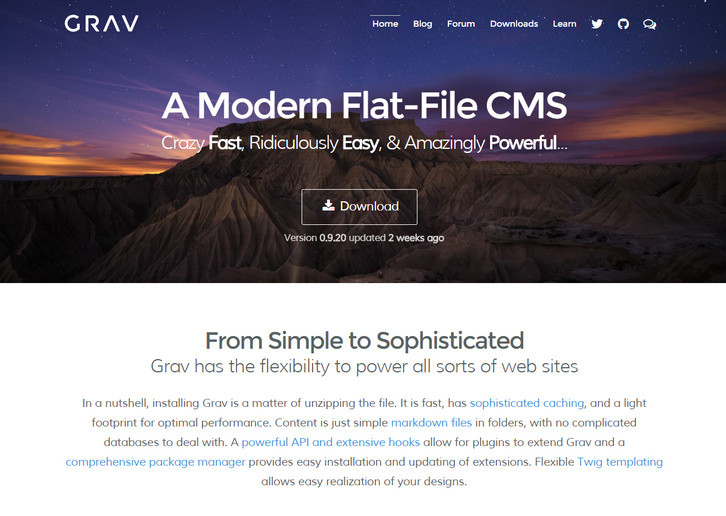
Requirements: –
Demo: http://getgrav.org/
License: MIT License
Primer is the CSS toolkit that powers GitHub’s front-end design. It’s purposefully limited to common components to provide our developers with the most flexibility, and to keep GitHub uniquely GitHubby. It’s built with SCSS and available via Bower, so it’s easy to include all or part of it within your own project.
It is available for use under the MIT license and built with open source projects like SCSS, Jekyll, Grunt, and more. It includes a small Gruntfile for compiling SCSS, Autoprefixer for vendor prefixes, and Parker for CSS stats.

Requirements: –
Demo: http://primercss.io/
License: MIT License
Dropplets is a minimalist Markdown blogging platform focused on delivering just what you need in a blogging solution. When it comes to basic blogging, all you really want to do is write & publish which is where Dropplets excels.
Dropplets is a fresh platform dedicated to making blogging simple. With no database, you can install Dropplets in seconds on any server, compose offline using markdown, then simply upload to publish. You can install it on any server in just about 30 seconds.
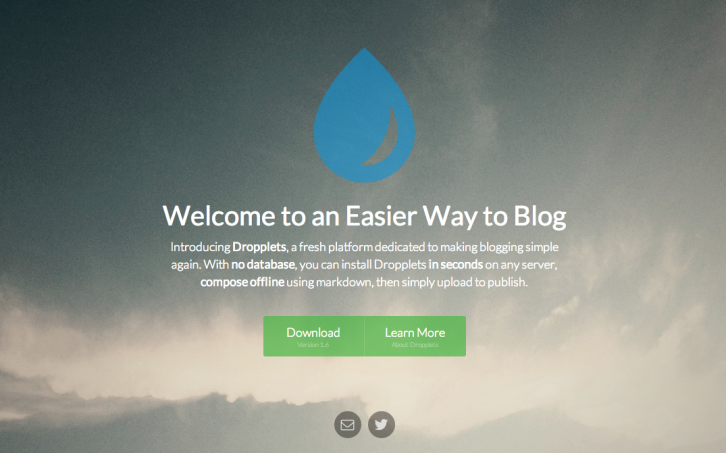
Requirements: –
Demo: http://dropplets.com/
License: License Free
Purple is a UI kit for all of Heroku’s digital properties. Purple provides guidelines for the aesthetic, function and form of user interfaces to provide a consistent experience for our customers. This is a living document and is under constant interation. They are not releasing a Bootstrap clone, they are simply creating documentation for their own design standards.

Requirements: –
Demo: http://purple.herokuapp.com/
License: MIT License
With NativeScript you can use your JavaScript and CSS skills to write native mobile applications for iOS, Android and (very soon) Windows Phone. There is no WebView involved in rendering the app, as the UI is rendered by the native platform’s rendering engine. Because of that, the app’s entire UX is native.
NativeScript enables you to use a complete stack of cross-platform APIs to write your application code or, if you need to, you can directly access all platform-specific native APIs using JavaScript only.
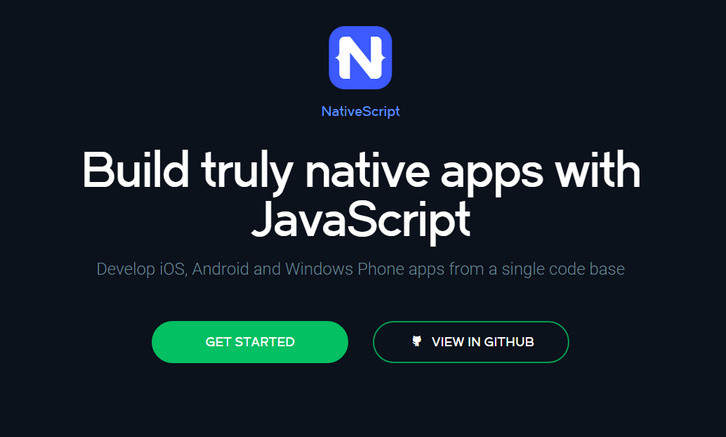
Requirements: JavaScript
Demo: https://www.nativescript.org/
License: Apache License
Kickoff is a lightweight front-end framework for creating scalable, responsive sites. As front-end developers, the type of project we work on is becoming more and more diverse. Kickoff aims to help keep a consistent structure and style across all of your projects, without adding the bloat that other frameworks can lead to.
Kickoff tries to mitigate common problems found in web development by providing a strong starting point and a set of helpful defaults for use on almost any project. The main difference when comparing Kickoff with other similar frameworks is that it is not nearly as prescriptive – we’re looking at you Bootstrap and Foundation. While those frameworks define almost every aspect of a website with CSS styles and JavaScript plugins that do everything, Kickoff gives you just what you need.

Requirements: –
Demo: http://tmwagency.github.io/kickoff/
License: MIT License
Do you need to query large JSON structures? Do you end up coding loops to parse the JSON and identify the data that matches your query? DefiantJS offers a better way.
DefiantJS provides the ability for you to build smart templates applicable on JSON structures, based upon proven & standardized technologies such as XSLT and XPath. DefiantJS also extends the global object JSON with the method “search”, which enables searches on JSON structures with XPath expressions and returns matches as an array-like object.
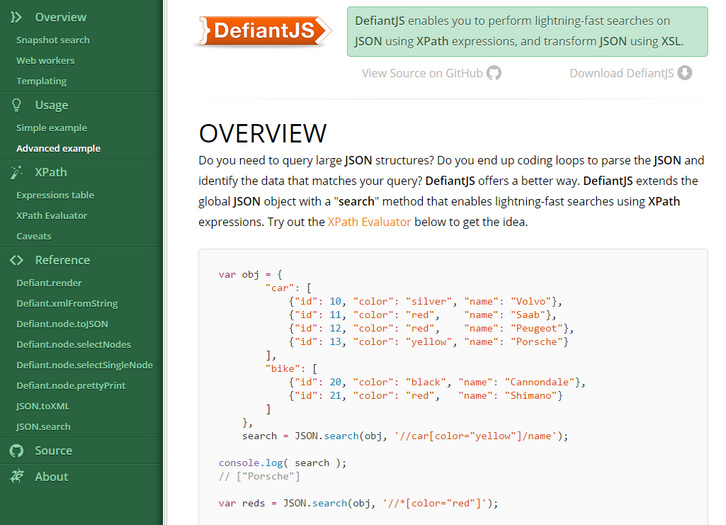
Requirements: JavaScript Framework
Demo: http://www.defiantjs.com/
License: MIT License













